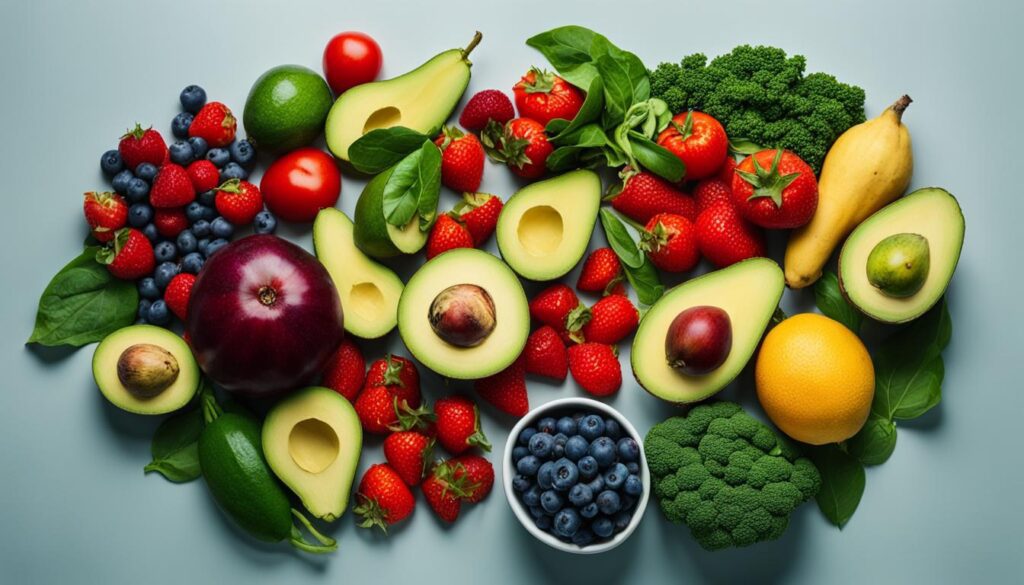If you’re concerned about your cholesterol levels but hesitant to rely on prescription medication, there are natural alternatives to statins that can support your heart health. By exploring non-prescription options, making lifestyle modifications, incorporating herbal supplements, and following a cholesterol-friendly diet, you can manage your cholesterol levels without relying solely on medication.
- There are natural alternatives to statins that can help manage cholesterol levels.
- Lifestyle modifications, herbal supplements, and a cholesterol-friendly diet can all support heart health.
- Reducing cholesterol naturally is possible with safe alternatives to statins.
Non-Prescription Options for Cholesterol: Exploring Natural Alternatives
Are you looking for alternative treatments for high cholesterol? If you prefer not to rely solely on prescription medication, there are several non-prescription options available for managing your cholesterol levels. Let’s explore some of these natural alternatives that can help you lower your cholesterol without the need for statins.
Cholesterol-Lowering Remedies
One of the most popular natural remedies for high cholesterol is garlic. Garlic has been shown to have cholesterol-lowering properties, helping to reduce total cholesterol levels by up to 15%. You can incorporate garlic into your diet by adding fresh minced garlic to your meals, or by taking garlic supplements.
Note: Remember to consult with your doctor before taking any supplements.
Alternative Treatments for High Cholesterol
Another alternative treatment for high cholesterol is red yeast rice. This traditional Chinese medicine has been used for centuries as a natural remedy for heart health. Red yeast rice contains a compound called monacolin K, which is similar to the active ingredient in statins. Studies have shown that red yeast rice can be effective in lowering cholesterol levels, but it’s important to note that it can also have side effects and should be used under the guidance of a healthcare professional.
Table:
| Non-Prescription Options | Cholesterol-Lowering Benefits |
|---|---|
| Psyllium | Reduces LDL cholesterol levels |
| Flaxseed | Contains omega-3 fatty acids, which help to reduce inflammation and lower cholesterol levels |
| Niacin | Increases HDL cholesterol levels |
Aside from garlic and red yeast rice, there are several other non-prescription options available for managing cholesterol levels. Psyllium, for example, is a type of soluble fiber that has been shown to reduce LDL cholesterol levels. Flaxseed is another natural remedy that contains omega-3 fatty acids, which help to reduce inflammation and lower cholesterol levels. Niacin, also known as vitamin B3, is a supplement that has been shown to increase HDL cholesterol levels.
Remember, it’s important to talk to your doctor before starting any new cholesterol-lowering treatments, even natural remedies. Working together, you can find an approach that is safe and effective for your individual needs.

Lifestyle Modifications for Cholesterol Management
If you’re looking to lower your cholesterol levels, making dietary and lifestyle changes can be an effective and holistic approach. Here are some dietary changes and lifestyle modifications that can help you manage your cholesterol levels:
1. Incorporate heart-healthy foods into your diet
Your diet plays a significant role in your cholesterol levels. Incorporating heart-healthy foods such as fruits, vegetables, whole grains, and lean protein sources can help you manage your cholesterol levels. Foods high in fiber, including oats, barley, and legumes, can also help lower LDL (bad) cholesterol levels.
2. Swap unhealthy fats for healthy fats
Saturated and trans fats found in red meat, butter, and processed foods can increase your LDL (bad) cholesterol levels. On the other hand, unsaturated fats found in avocados, nuts, and fatty fish can help lower LDL (bad) cholesterol levels. Consider swapping unhealthy fats for healthier alternatives to improve your cholesterol levels.
3. Exercise regularly
Regular exercise can help lower LDL (bad) cholesterol levels and increase HDL (good) cholesterol levels. Aim for at least 30 minutes of moderate-intensity exercise, such as brisk walking, most days of the week.
4. Quit smoking
Smoking can lower HDL (good) cholesterol levels and damage your blood vessels, leading to an increased risk of heart disease. Quitting smoking can help improve your cholesterol levels and overall heart health.
5. Manage stress
Chronic stress can contribute to high cholesterol levels and an increased risk of heart disease. Finding ways to manage stress, such as meditation or yoga, can help improve your cholesterol levels and overall heart health.
By making these simple lifestyle modifications, you can effectively manage your cholesterol levels and promote better heart health.

Herbal Supplements and Remedies for Cholesterol
If you’re looking for natural alternatives to statins, herbal supplements and remedies may be a viable option. Many herbs and plants have been used for centuries to support heart health and manage cholesterol levels. However, it’s important to note that some herbal supplements may interact with prescription medication, so it’s best to consult with your healthcare provider before adding any to your regimen.
Herbal supplements for statin users: If you’re currently taking statins, it’s important to be cautious when taking herbal supplements. Some herbs may interact with statins and cause unintended side effects. However, some herbal supplements may actually enhance the effects of statins, allowing you to take a lower dose. For example, artichoke leaf extract has been shown to reduce LDL cholesterol levels and may enhance the effects of statins.

Herbal remedies for cholesterol: There are several herbal remedies that may help manage cholesterol levels. One of the most well-known is garlic. Studies have shown that garlic supplements may lower total cholesterol, LDL cholesterol, and triglyceride levels. Another herb to consider is fenugreek, which has been shown to lower LDL cholesterol levels.
Alternative medicine for high cholesterol: In addition to herbal supplements, there are several alternative medicine practices that may help manage cholesterol levels. One such practice is acupuncture, which has been shown to reduce cholesterol levels in some studies. Another alternative practice to consider is yoga, which has been shown to improve cholesterol levels and reduce the risk of heart disease.
Table: Herbal Supplements and Remedies for Cholesterol
| Herbal Supplement/Remedy | Benefits | Precautions/Interactions |
|---|---|---|
| Garlic | May lower total cholesterol, LDL cholesterol, and triglyceride levels | May increase the risk of bleeding when taken with blood-thinning medication |
| Fenugreek | May lower LDL cholesterol levels | May interact with diabetes medication |
| Artichoke leaf extract | May reduce LDL cholesterol levels and enhance the effects of statins | May interact with bile acid sequestrants |
Expert tip: When choosing herbal supplements, be sure to look for standardized extracts and consult with a licensed healthcare provider.
Herbal supplements and remedies can be a safe and effective way to manage cholesterol levels. However, it’s important to use them in conjunction with lifestyle modifications and dietary changes for optimal results. By taking a holistic approach to cholesterol management, you can reduce cholesterol naturally and promote better heart health.
Dietary Solutions for Hyperlipidemia
Hyperlipidemia, or high cholesterol, is a common condition that can lead to cardiovascular disease. Making dietary changes is an effective way to manage hyperlipidemia and improve heart health.
One dietary solution is incorporating plant sterols and stanols into your meals. These compounds are structurally similar to cholesterol and help block the absorption of cholesterol in the intestines. Foods that naturally contain plant sterols and stanols, such as vegetable oils, nuts, seeds, and whole grains, can be easily added to your diet. Additionally, there are fortified foods such as margarines and orange juice that contain added plant sterols and stanols. However, be sure to check with your healthcare provider before incorporating these fortified products into your diet.

Another effective dietary solution for hyperlipidemia is increasing your intake of omega-3 fatty acids. Research has shown that these healthy fats can help lower triglycerides and reduce the risk of heart disease. Foods that are high in omega-3s include fatty fish such as salmon, mackerel, and tuna, as well as flaxseeds, chia seeds, and walnuts. If you don’t eat enough omega-3-rich foods, your healthcare provider may recommend an omega-3 supplement.
A healthy diet overall is essential for managing hyperlipidemia. Eating a diet that is rich in whole grains, fruits, and vegetables can help promote heart health. Additionally, reducing your intake of saturated and trans fats, added sugars, and processed foods can help lower your cholesterol levels and reduce your risk of cardiovascular disease.
Example of a Cholesterol-Lowering Diet
| Food Group | Recommended Servings |
|---|---|
| Whole Grains | 6-8 servings per day |
| Fruits and Vegetables | 5-10 servings per day |
| Lean Protein | 2-4 servings per day |
| Low-Fat Dairy | 2-3 servings per day |
| Healthy Fats | 3-5 servings per day |
By incorporating plant sterols and stanols, increasing your intake of omega-3 fatty acids, and following a cholesterol-lowering diet, you can effectively manage hyperlipidemia without relying solely on medication. Be sure to consult with your healthcare provider and a registered dietitian to develop a personalized plan for your cholesterol management.
Conclusion
If you’re looking for safe alternatives to statins and want to reduce cholesterol naturally, there are several options available to you. By making simple lifestyle modifications, incorporating herbal supplements, and following a cholesterol-friendly diet, you can manage your cholesterol levels without relying solely on medication.
Lifestyle Modifications
One of the most effective ways to control your cholesterol naturally is by making lifestyle modifications. Simple changes like increasing your physical activity, quitting smoking, and reducing alcohol consumption can make a huge difference in your cholesterol levels.
Herbal Supplements
Herbal supplements like garlic, red yeast rice, and artichoke extract have been shown to support cholesterol management. These supplements can be used alongside or as an alternative to statins, but it’s important to consult with your healthcare provider before incorporating them into your regimen.
Dietary Solutions
A healthy diet that includes plant sterols and stanols, as well as omega-3 fatty acids, can significantly lower your cholesterol levels. Incorporate these foods into your meals to support your cholesterol management.
By exploring these natural alternatives to statins and making small changes in your lifestyle and diet, you can take control of your cholesterol levels and reduce your risk of heart disease. Remember to consult with your healthcare provider before making any significant changes to your regimen.
FAQ
Are natural alternatives to statins safe?
Yes, natural alternatives to statins are generally considered safe when used as directed. However, it’s always advisable to consult with your healthcare provider before starting any new treatment.
Can natural alternatives effectively lower cholesterol?
Yes, natural alternatives have shown promising results in reducing cholesterol levels. They can be an effective option for those looking to manage their cholesterol without prescription medication.
What are some non-prescription options for managing cholesterol?
Non-prescription options for managing cholesterol include dietary modifications, herbal supplements, and lifestyle changes. These can help lower cholesterol levels naturally.
Can lifestyle modifications alone lower cholesterol?
Yes, making lifestyle modifications can have a significant impact on cholesterol levels. Incorporating regular exercise, maintaining a healthy weight, and following a heart-healthy diet can help lower cholesterol naturally.
Are herbal supplements safe to use alongside statins?
It is important to consult with your healthcare provider before taking herbal supplements alongside statins or any other medications. Some herbal supplements may interact with prescription drugs.
What dietary solutions can help manage high cholesterol?
Incorporating foods rich in plant sterols and stanols, as well as omega-3 fatty acids, can help manage high cholesterol. These dietary solutions have been shown to have cholesterol-lowering effects.
Can natural alternatives completely replace statins?
Natural alternatives can be used as an alternative to statins in some cases. However, it is essential to work closely with your healthcare provider to determine the most appropriate treatment plan for your specific situation.
Are there any side effects associated with natural alternatives?
Natural alternatives may have fewer side effects compared to prescription medications. However, it is still possible to experience side effects, and individual reactions may vary. Always monitor your body’s response and consult with your healthcare provider if you have any concerns.
Can natural alternatives be used alongside other cholesterol-lowering medications?
It is crucial to consult with your healthcare provider before combining natural alternatives with other cholesterol-lowering medications. They can advise on potential interactions and ensure the best treatment plan for your needs.
How long does it take for natural alternatives to show results?
The time it takes to see results can vary depending on the individual and the specific natural alternative being used. It may take several weeks or months to observe significant changes in cholesterol levels. Consistency and adherence to the recommended regimen are key.


